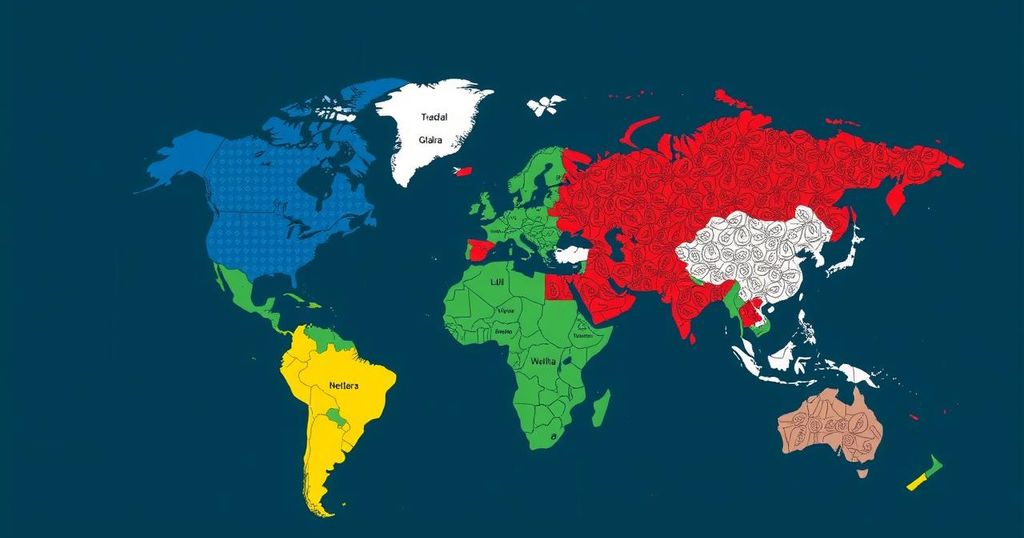Commonwealth Nations Focus on Climate Change and Slavery Reparations in Samoa
The Commonwealth Heads of Government Meeting in Samoa is addressing significant issues, including climate change impacts on small island nations and the ongoing push for reparations for transatlantic slavery. Key discussions involve environmental protections and the historical implications of slavery, with advocacy from Caribbean states for reparations from former colonial powers. British leaders emphasize climate security while acknowledging the need for dialogue on reparations.
The Commonwealth Heads of Government Meeting (CHOGM) is currently taking place in Samoa, focusing on pressing issues such as climate change and the reparations for Britain’s involvement in the transatlantic slave trade. Leaders from 56 nations, including King Charles III, are participating in the discussions that began earlier this week. This summit is particularly significant for small island states within the Commonwealth, which are acutely vulnerable to the consequences of climate change, including rising sea levels. United Nations Secretary-General Antonio Guterres highlighted that the temperatures in the Pacific Islands are escalating at three times the global average, elevating the urgency of this issue. Australian Foreign Minister Penny Wong pointed out that climate change represents the primary national and economic security threat for many Commonwealth nations, with several African nations, including Zambia, underscoring concerns regarding food security. The meeting is expected to culminate in a declaration on ocean protection as a response to these climate threats. In addition to climate discussions, there is a growing advocacy for reparations tied to the historical injustices of slavery. Despite British Prime Minister Keir Starmer’s statement that reparations would not officially be discussed, he expressed a willingness to engage with leaders desiring such dialogues. The Caribbean Community (CARICOM) has formed a commission to pursue reparations from former colonial powers, including the United Kingdom, France, and Portugal. Proponents of reparations argue that the legacy of slavery has resulted in ongoing racial disparities, while opponents contend that contemporary nations should not bear accountability for historic wrongs. Kingsley Abbott, attending the summit as director of the University of London’s Institute of Commonwealth Studies, stated that it is crucial to listen to those affected by past atrocities. Historically, from the 15th to the 19th century, at least 12.5 million Africans were forcibly transported and exploited as slaves. This historical context sheds light on the current restitution debates that reverberate through the Commonwealth nations today.
The Commonwealth is a political association of 56 member states, most of which are former territories of the British Empire. Assemblies such as the Commonwealth Heads of Government Meeting (CHOGM) provide a platform for leaders to address shared challenges, including economic development, governance, and social inequalities. This year, the focus on reparations for slavery and climate change reflects the ongoing consequences of colonialism and globalization. As many Commonwealth states are small island nations, they are particularly vulnerable to the impacts of climate change, prompting discussions about urgent environmental protections alongside social justice initiatives aimed at addressing historical grievances.
The ongoing Commonwealth Heads of Government Meeting in Samoa underscores the intertwined nature of historical injustices and contemporary challenges. As leaders discuss the impacts of climate change and the push for reparations for past atrocities, it highlights the Commonwealth’s commitment to addressing vulnerable nations’ needs while reconciling historic injustices. The discussions, especially regarding climate change and reparations, are vital in shaping future cooperation among Commonwealth nations as they seek pathways towards equity and sustainability.
Original Source: www.swissinfo.ch




Post Comment